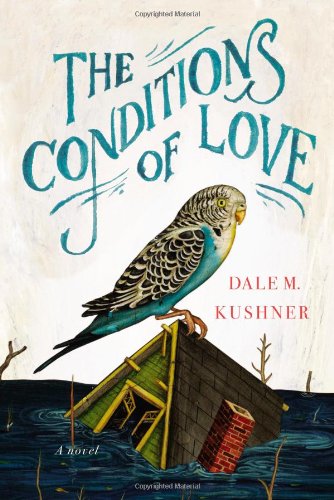The Conditions of Love
In Wild Pea, Illinois, in the 1950s, Eunice lives with her mother, Mern, and God forbid she be called Mother. That’s fine, because she’s not much of one. Mern’s flightiness takes them to Wisconsin, away from supportive friends. When a flood separates them, Mern opts for California and Eunice finds a home with Rose, who lives off the land without electricity but imparts a peace and maturity to Eunice’s life. But social workers intervene, placing Eunice with a foster family. She is as unlike them as she was Mern, and she finds love and a home on a farm with Fox, an older man (Eunice is only sixteen at this point). The maturity Rose has taught her is tested when Fox has a terrible accident.
Kushner deftly captures Eunice in all of her awkward years as well as her adult relationship with Fox. The setting—small-town Midwest—means that Eunice remains almost untouched by social and political events of the 1950s and 1960s. Instead, the period comes out in the small details; Mern styles herself after Ava Gardner, Grace Kelly, or Rita Hayworth, according to her fancy. Mern is an infuriating character, a neglectful mother without much to redeem her, almost a cliché. Instead, Eunice’s time with Rose and with Fox is much more engrossing and original. Eunice herself can be frustrating, but that’s an aspect of her youth, and what is satisfying is to see her not turn into her mother, deliberately choosing another path.
This is a beautifully written book, demanding time and attention. Although not overtly historical, it is impossible to imagine the time and space that Eunice has for introspection as possible in a modern setting.










